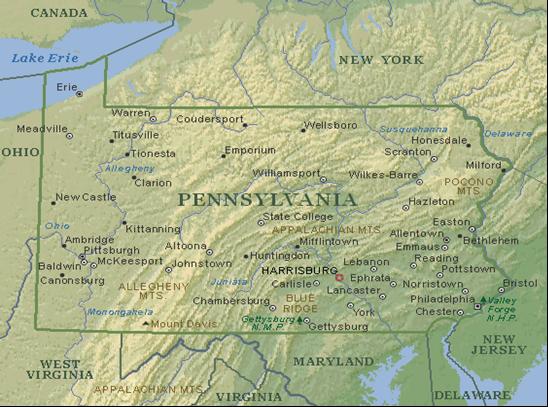My thoughts:
If Gettysburg is avoided on July 1st, Lee's army will stay west of the Blue Ridge Mountains and march North towards Carlisle., where it will meet up with Stuart on July 1st. At this point, Lee will realize that he is now slightly Northeast of Meade's army instead of Northwest and at risk of possibly being cut off. Meade, will still not know exactly where Lee is and his army will probably march into the town of Gettysburg on July 1st.
Lee has three options at this point:
1. March eastwards towards Harrisburg. As I mentioned in my earlier post, that would end in disaster for Lee's army.
2. March immediately South (on what is now routes 15 and 34) and take the fight to Meade's army somewhere in between Gettysburg and Carlisle.
3. Head southwest back down the Chambersburg Pike (now route 11), which gives up two additional sub options:
- Retreat back into Virginia across the Potomac and sit on the defensive.
- Turn east at Hagerstown towards Fredrick and try to get in between Meade's army and Washington DC and force a battle on ground of his own choosing.
Personally, I think option 2 or option 3.B are the most likely.
Meade on the night of July 1st in the atl decision also has three options:
1. Continue heading north blind until he runs into Lee's army.
2. Sit at Gettysburg and do nothing until his cavalry figures out where Lee is going and then simply react to Lee's movement.
3. Take the initiative and send forces west to try and cut off the Chambersburg Pike
Personally, I think Meade would take option 2.
If Meade and Lee both take their options 2, were either going to see a atl Battle of Gettysburg, or Meade will fall back to his preplanned line around Emmittsburg, Pipe Creek and Taneytown. If Lee goes for option 3.B and Mead goes for option 2, Meade's army has less ground to cover and will probably withdrawal to Emmitsburg to defend the mountain passes, and then to Fredrick as Lee keeps moving back South, leading to a battle in Western Maryland.
